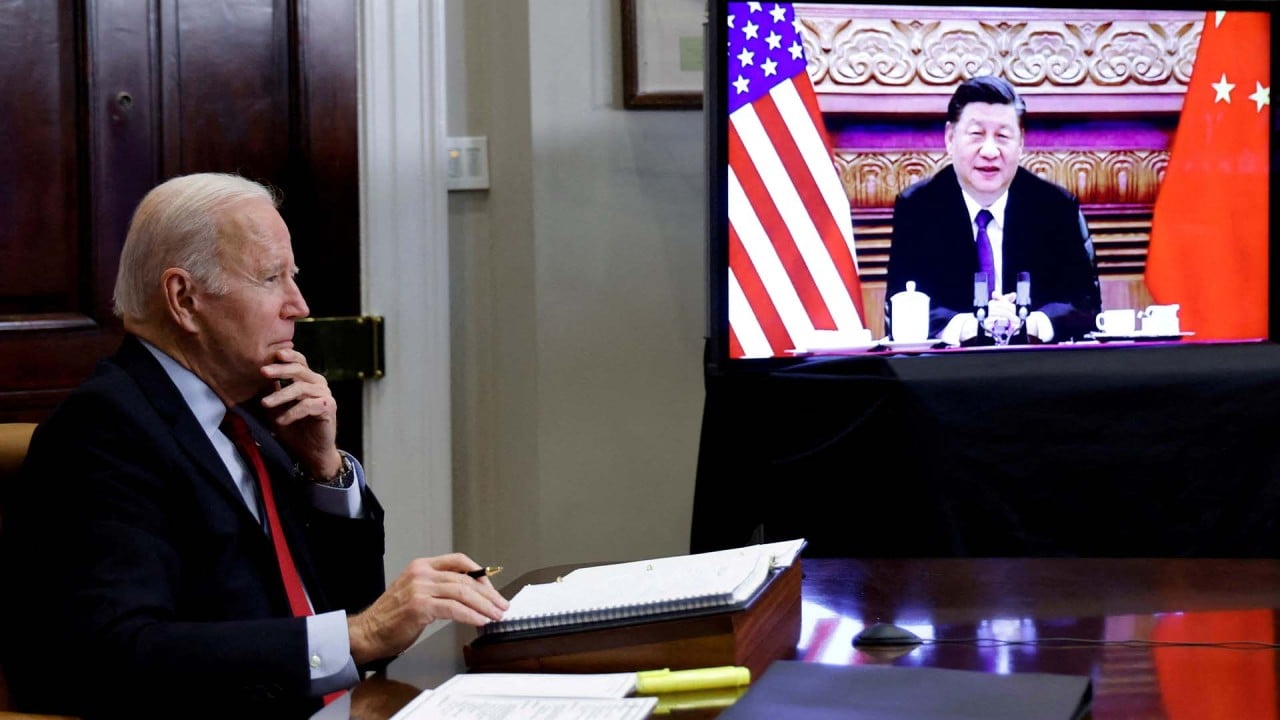
On Taiwan, the US and China must talk their way back to the status quo
- Both sides need to dial down military action, and return to the negotiating table in good faith
- A Biden-Xi meeting is tentatively planned for November. The two leaders should focus on areas of cooperation, not bones of contention
Tensions have reached boiling point between the United States and China, and many are wondering if relations can ever return to normal. For this to happen, we will need to see a renewed commitment to the status quo, a halt to military posturing on all sides, and a return to the negotiating table with cooler heads.
These responses have been enough to preserve the status quo in the past. However, the present situation and its proximity to the comments by Biden may require a firmer reaffirmation.
Other sources, such as Secretary of State Antony Blinken or National Security Adviser Jake Sullivan, would hold enough significance to have a similar effect to past reaffirmations of the one-China policy and the three joint communiques.
Almost immediately after Pelosi left Taiwanese airspace, the People’s Liberation Army started a planned four days of military exercises in six zones around Taiwan. These exercises were extended to nearly a week and encompassed the firing of at least 11 nuclear-capable missiles, multiple aircraft incursions and drills by amphibious forces of the PLA.
In the build-up to the Russian invasion of Ukraine, troops gathered near Ukraine’s borders with Russia and Belarus under the banner of military exercises. Since then, many have been sceptical of a nation’s intentions when performing military drills; hence the rising tensions between the nations of East Asia and the US.
For Sino-US relations and those between the US and others in the region to improve, there needs to be a pause in these exercises. Not just the PLA’s exercises around Taiwan but also the exercises being held by the US and its allies in the region. The presence of active militaries will continue to put a strain on Sino-US relations.
PLA military drills around Taiwan weaken the US’ Indo-Pacific strategy
During this meeting, instead of debating the Taiwan issue and the grievances of the two nations, the two leaders should focus on areas where they can cooperate and compete fairly. These areas include international food security, climate change and economic stimulus.
For Sino-US relations to return to normal, there will need to be many events and concentrated efforts to redefine the relationship between the two great nations. For a start, they will need to reaffirm the status quo by clarifying a commitment to policy, reducing military action, and returning to the negotiating table in good faith.
James Hinote is a geopolitical analyst at CJPA Global Advisors. A graduate of Auburn University Harbert College of Business, he studied at East China Normal University in Shanghai
Earl Carr is founder and chief executive officer at CJPA Global Advisors and editor of the new book “From Trump to Biden and Beyond: Reimagining US-China Relations”. He is also an adjunct instructor at NYU’s Center for Global Affairs



